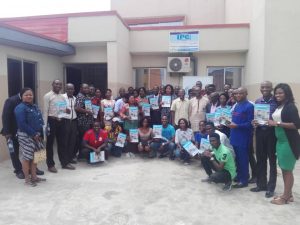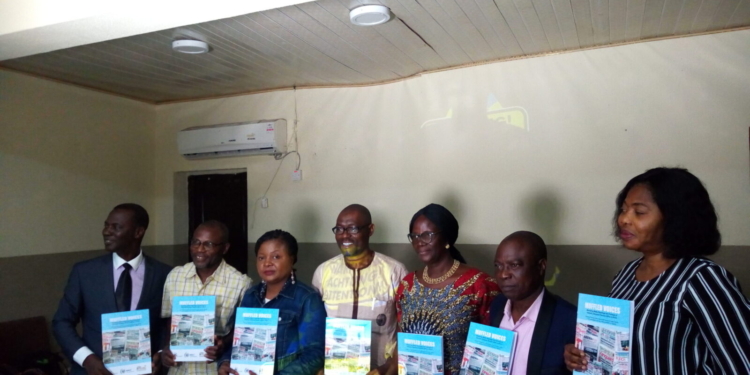Reports have shown that Journalists have been haphazardly reporting stories regarding to Internally Displaced Persons across the country and paying little or no attention to their welfare, safety and rights.
This was disclosed by Associate Professor of Mass Communication at the University of Lagos, Dr. Oloruntola Sunday, during the Public Presentation of ‘Muffled Voices’, a published report of findings from a two-month survey of media report in six Nigerian Newspapers and two online platforms on Media Reportage and Portrayal of IDPs. The survey was conducted by Journalists for Christ with support from World Association for Christian Communication, WACC.
Dr. Sunday, the book reviewer noted that the published report showed that journalists only report about IDPs when government officials visit the camp or report about humanitarian support by charity organizations. He said this won’t give the public an informed perspective about the plights of the IDPs.
Giving the analysis, Dr. Sunday said “during the two months survey, 70% of the reports were news stories, three editorials, 30% feature stories and 1 picture was used.” He decried what he called poor reportage of IDP in the media space and call for a deliberate change to ensure the plights and voices of the displaced persons are made known publicly.
The Associate Professor also urged the Nigerian government to create policies which would protect the interests of IDPs across the country.
He hoped that the published report, “Muffled Voices” would serve as an advocacy tool which would help Internally Displaced Persons and urged journalists to portray IDPs in a positive light especially women and children.
Earlier, Mr Lekan Otufodunrin, President, Journalists for Christ, while giving his opening remarks said “the report was informed by the need to have empirical evidence on the pattern of coverage of the plight of thousands of Nigerians who have over the years been displaced from their homes due to continued conflict situations in the country, especially due to insurgency and terrorist attacks and ensure the required response from government and other stakeholders.
“Despite the various challenges they have to cope with, media coverage and reportage of IDPs revealed that information on the welfare and living conditions of the IDPs are usually restricted and not adequately reported. Institutional and humanitarian agencies to addressing the needs of IDPs are also inadequate.”
Mr. Otufodunrin added that, “It is our hope that the media in Nigeria will find this report as a useful guide to be able to play their expected role in informing and educating all concerned about the true state of IDPs issues in our country. Our ultimate desire is that IDP camps will not continue to be a permanent feature in our country.”

Betty Abah, Executive Director, CEEHOPE Nigeria urged journalists to shed more lights on IDP issues especially as it relates to women and children because they are the most affected in the camps.
Abah added that journalists should contribute their quota in improving the lives of the IDPs by shedding light on their plights and the need for rehabilitation.
Ola Erinfolami, Assistant Chief Admin Officer at the National Commission for Refugees, Migrants and Internally Displaced Persons, South West Zonal Office, commended JFC for the survey which according to her would draw attention among actors across the country.
She added that displacement is increasing across the country owing to various issues adding that there is need for journalists to pay attention to it so their plights can be addressed.
The report recommended that, “IDP issues deserve editorials and reportorial slants that implore government agencies, humanitarian agencies and related institutions to put in place policies that guarantee, advance and promote improvement in provisioning of basic amenities and the rights of dignity and welfare of IDPs.
It also recommended that “media reports should be more incisive, especially in investigating allegations of corruption in the management of resources for IDPs. More women and children who are the most vulnerable should be given space to air their concerns in media reportage, in fulfilment of media’s obligation as a voice to the voiceless.

